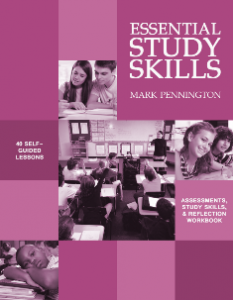Executive Function Skills
If you googled Executive Function Skills to get this article, you know that this is a trending educational topic. As educators, parents, and students, we’ve learned a lot about learning during the pandemic. Researchers, too, have hopped aboard this train with grant money conducting the ride, and the recent research base validating the importance of executive functioning skills is impressive.
Now, as I write this article in August of 2022, I can’t help thinking about two popular idiomatic expressions: “A horse by any other name is still a horse” and “What goes around, comes around.” Come to think of it, these expressions are not really that popular anymore, but I’m not familiar with their contemporary replacements.
Somewhat surprisingly, googling study skills still produces plenty of search results and you may even have found this article by entering this phrase. However, the updated “horse by any other name” is executive function skills.
Now, technically the two terms are a Venn diagram with some differences, but with a much larger overlap of similar components. Both study skills and executive function skills share the same characteristics: active self-regulatory processes which play substantial roles in learning.
Additionally, the older collection of study skills, which seemed destined to fade into oblivion due to instructional time constraints or had been narrowed down to last-minute test prep in many schools, has now been re-branded into a similar, but expanded version of itself.
“What comes around” are the same old, with some new, study skills, but with quite a different look. Executive function skills now are trending.
The research about executive function (EF) skills is particularly impressive in reading development. Researchers Nell Duke and Kelly Cartwright (2021) summarize this body of recent research:
Several EF skills contribute directly to reading: cognitive flexibility, inhibitory control, working memory, planning, and attentional control… EF skills also contribute to reading ability indirectly, through both word recognition and language comprehension processes… EF is so important to reading that there is reason to believe that for some students, limited EF skills are the primary cause of reading difficulty.
As a reading specialist, I might not be quite as effusive in extolling the merits and critical importance of EF skills on reading development; however, they certainly play a role, especially with respect to reading intervention (e.g., Melby-Lervåg & Hulme).
In sum, the recent research does seem to indicate that the old study skills are still essential. So, thank you for teaching them to our students.
______________________________________________________________________________________________________
The author, Mark Pennington’s Essential Study Skills is a wonderful collection of teacher or student-guided 20-minute lessons (the perfect substitute lesson plans) to teach what some seem to believe are common sense skills, or things other teachers must have already taught.

Essential Study Skills


